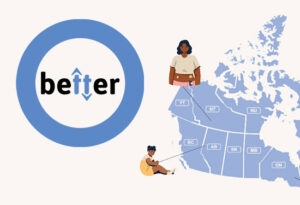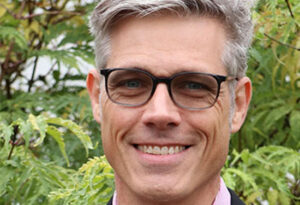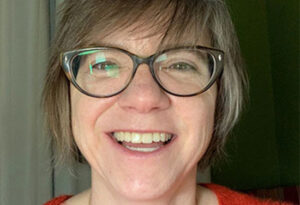Evelyn Riddell vividly remembers the year she began university as a happy and hopeful student embarking on the first step towards her future career.
However, adjusting to university life was difficult. Evelyn, who lives with type 1 diabetes (T1D), suffered from burnout, which affected many aspects of her life.
“I realized that I wasn’t putting as much time into my self-management as I could have,” she recalls. “T1D takes a lot of effort, but I understood why. When I allowed my blood sugars to remain out of range, all other aspects of my life were affected. My studies and my social life. I was losing out on experiences and couldn’t enjoy the moment.”
Although Evelyn did not have to be hospitalized, she knew she had to make changes to her lifestyle. Diagnosed at the age of 12, Evelyn was already well-versed in the daily management of T1D. However, exam season added much anxiety and often caused fluctuations in her blood sugar levels. That’s when she started to notice that it was affecting her exam performance.
“I have a heightened fear of having a low (blood sugar) during class,” Evelyn states. “Given the day-to-day schedule changes at school, I have to find a routine for basal insulin that works and eat at a certain time since everything will impact my blood sugar.”
Gradually, the realization set in that self-advocacy would be her best defence in ensuring a smooth process at school.
“Universities have Accessibility offices, which offer many resources for students, so I went to discuss my situation with them,” Evelyn recounts. “We worked together to create a plan personal to my T1D. I have such accommodations as only writing one exam per day. I am also allowed to take breaks during the exam and will get that time back at the end. It takes away the stress of treating a low blood sugar that makes me lose writing time. Now that I have more control over my T1D during exams I find that I do much better academically.”
According to Evelyn, people living with T1D can especially benefit from coping mechanisms for stress.
“T1D is 24/7 and we don’t get a break,” she says candidly. “But I have learned that it is 100% worth it. When you prioritize your health, it creates a domino effect which positively impacts other areas of your life. For example, you will be performing at your best academically.”
Evelyn is one of the founding members of the University’s College Diabetes Network Chapter, which helps to raise awareness of the challenges related to T1D on campus.
“It is extremely important that you tell your peers about your T1D, so they can be there to help you,” she says. “Be open with your friends, and teach them about T1D. Having someone who can spot a low blood sugar, or who can be there to listen is a great way to help relieve stress.”
Evelyn is currently in her third year of university. She credits T1D for teaching her a lot about herself and shaping her into the woman she is today.
“T1D has given me a hyper-awareness of my body, which is pretty special because I understand exactly what it’s feeling,” she says. “It also gave me a strong sense of resiliency, as well as time management and many other skills which come in handy for school. Recognizing what I go through and realizing that everyone has something they are struggling with has also made me more empathetic.”
Over the years, Evelyn has become involved with JDRF, participating in its annual Walk and Ride, and serving as a spokesperson for the organization. She was also hired as JDRF’s marketing and communications intern last summer.
“It was my first real ‘grown-up’ job in an industry I wanted to work in,” she relates. “The position offered roles and responsibilities that were challenging, and all related to finding a cure for T1D. It was truly a powerful experience to collaborate with people who shared a common goal, and one so close to my heart.”
Since Evelyn’s experience with burnout, she has adopted a different outlook on living with a chronic illness.
“Health is always a priority,” says the 20-year-old. “Resources are available to help you, but you have to be your own advocate. And if you let it, T1D can be your personal superpower.




